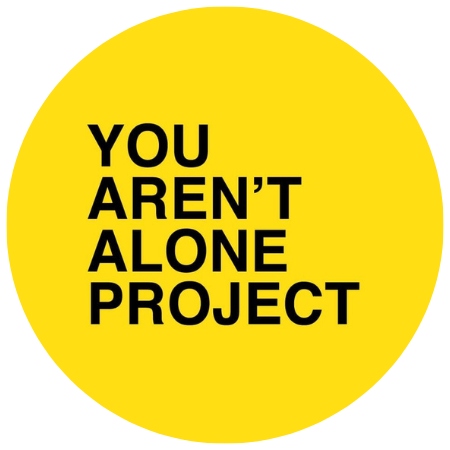The Shortest Month, The Heaviest Load: Black History and Black Mental Health
by McCaala ‘MC’ Nelson for You Aren’t Alone Project
Black History Month has always been bittersweet—a time marked for celebration, yet a reminder of how much further we have to go. Even the month itself, the shortest of the year, feels like a symbol of how we are often given less and expected to do more. But if history has taught us anything, it’s that Black folks can turn a little into legacy.
Growing up as a Black woman in the South—especially in one of the most physically segregated cities in the nation—means constant mental gymnastics just to exist.
It is an honor to be raised in Baton Rouge, Louisiana where my house of worship played an integral role in the Civil Rights Movement. Walking the same streets where my elders once mobilized is both grounding and inspiring. But it’s also a heavy cross to bear when you realize we are hardly two generations removed from the pain and oppression of that time.
We’ve heard elders recall their participation in our collective liberation—how, as young adults, they risked their lives for our “inalienable rights.” To be so young, certain and courageous is awe-inspiring. But to be so young and willing to die for what should have been your birthright breaks my heart. It’s a painful reminder that, even today, Black lives—especially those of young Black men—are still endangered daily for a right to live.
So, how is my mental health during Black History Month? A conundrum.
On one hand, I feel immense pride. Seeing our contributions to the world—our innovations, creativity, and culture—on full display is empowering. From inventions that shape everyday life to the reclamation of our rightful place as pioneers in music, art, and culture, I am reminded of the brilliance that runs through my veins.
On the other, it is sobering to see how much further we still have to go. To experience the unsaid expectation that we must be twice as great just to be considered “good enough.” To still bear witness to “first Black” achievements in 2025 is frustrating beyond belief. Even Beyoncé’s winning Best Country Album at the Grammys underscores a larger truth—our excellence is often treated as an anomaly, even in spaces we helped shape, like country music.
I’m often challenged to recognize that our successes are too often seen as threats. Instead of being positioned for more, we are given less. But that’s exactly how we created soul food—scraps of meat, the last of the cornmeal, the corner of leafy greens left behind. We took what was discarded and turned it into something nourishing, something that still feeds generations.
That ingenuity, that power, that will to survive and thrive is what runs through us. We are quick to acknowledge the pain, but this Black History Month, I am choosing to focus on the side of the double-edged sword that protects, uplifts, and advances us. When I reflect on the legacies honored during these 28 days, it is a privilege to walk paths blazed by those before me—guided by their work, their roadmaps, their resilience. I’m convicted to blaze my own.
What a privilege it is to have a culture so rich that the world can’t help but to mirror it back—sometimes without even knowing. But imitation isn’t honor—recognition, respect, and reparations are. As we move through this Black History Month, let’s celebrate our past, press forward in our present, and demand our future.
Happy Black History Month.
